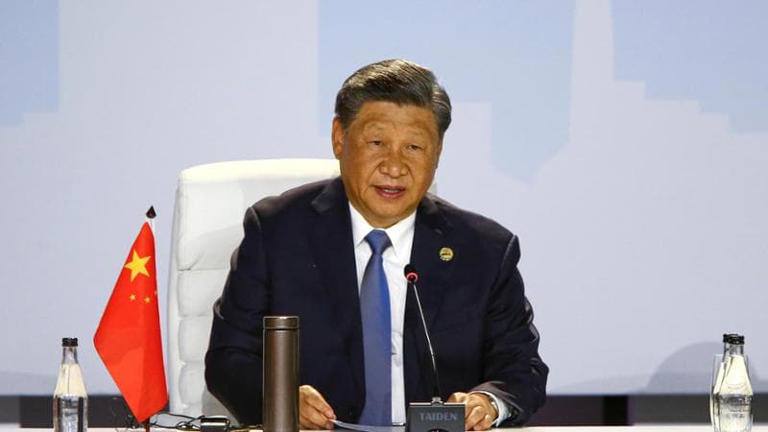The return of the giant to the lamp
According to Iran Gate Daily, a miraculous event happened in a country that, over the course of thirty years of reforms and openness, gradually moved away from poverty and misery and turned into a superpower. In that country, the social contract between the Communist Party and the enlightened citizens was clear: do not question our power and do not challenge it. You will have the freedom to wake up richer every day than the day before.
It seems that China is all done. On one hand, because its development model, as the world’s low-cost factory, exports infrastructure for the first phase of growth up to the level of average income. But then it falls into a trap. Investments become less productive every day and debt accumulates without acting as a driving force. On the other hand, because the party and its permanent leader, Xi Jinping, have changed their priorities in the face of increasing dangers that began with the power challenge with the United States.
Now, security and transforming China into an impregnable and cohesive fortress is more important than development. A social contract or agreement with citizens has changed the nature. Only the party can lead you through the danger and maintain order and stability, but it must govern over everything, whatever is necessary and whatever the cost may be.
Therefore, it is necessary to use different political lenses in order to reduce the recession in which the dragon is entangled, reduce the growth rate, reduce inflation, reduce the rising rate of youth unemployment, which is at its highest level, and interpret increasing distrust. This way, we can understand that the government has deliberately initiated this crisis, even being aware that China is also at risk of being caught in it.
The strict regulations and limitations imposed in the real estate sector have temporarily halted and suspended sales, pushing real estate giants towards bankruptcy. This is a very dangerous remedy due to the emptying of skyscrapers, one after another, and the brick prices that have fallen to one-third of their value during the growth period.
Furthermore, because the allocation of land to skyscraper builders and developers was the primary source of income for local authorities, it was necessary and unavoidable for the non-productive bubble to be deflated. However, the problem is that this alone is not sufficient for real paradigm shift towards high-quality growth, which itself requires theoretical consideration.
Many Chinese economists believe that for the next push towards welfare, it is essential to transfer resources from the government and semi-government sectors to private companies. In addition, it requires less heavy industry and more advanced technology and services, as well as a lower but more valuable investment, equivalent to 44% of gross domestic product and higher consumption, which should remain constant at a rate of 38%.
They also believe that inequalities must be reduced and wealth should be transferred to families through health and education expenses because the absence of a real welfare system leads Chinese people to start saving instead of investing and consuming.
In all of this, there is no trace or sign of ambiguous formulas of common prosperity. The explanation that can be given is once again political, a centralized rotation and authoritarianism of Xi Jinping, who is convinced that this is the only way to guarantee the future for China and the party, based on controlling the economy and society. Xi Jinping seeks to direct power and resources towards strategic sectors to challenge the United States, a challenge that started with chips and it was announced that private companies must comply with it or be forced to do so, as demonstrated by the attack on Jack Ma’s technology empire.
On the other hand, a paradigm shift requires dismantling the institutional and power structures that have been built around the economic model for years, and it has unpredictable effects on government stability. State industries, mythical salaries, and wages are one of its pillars, just like the use of welfare policies as a control tool.
Behind the ideological attacks against Western-style welfare, with the idea that subsidies are not suitable for the Chinese because they push them towards laziness, there is a hidden fear that a real welfare system would grant them more autonomy and independence, which would deprive the party of power.
Therefore, now that the economy needs an electric shock to prevent social instability, we are reverting back to the previous guidelines of more credit and infrastructure, despite the fact that the space for stimuli is increasingly limited, with a debt that exceeds 300% of GDP and diminishing effectiveness.
Of course, it should be noted that no observer expects a collapse. The Chinese government has levers to control property speculation and will do whatever it takes, at any cost, to achieve the growth target of 5% for 2023.
One characteristic of pragmatic leadership is that it has allowed them in the past to self-correct and render the worst predictions ineffective. However, the hypothesis that many raise is that because Xi Jinping has surrounded himself with yes-men instead of pragmatic advisors, China is currently experiencing a demographic decline and is sliding into a prolonged period of recession.
It is similar to the experience seen in Japan in the 1990s, but what needs to be emphasized is the fact that China is entering a recessionary period while still being a developing country with a per capita income of less than $15,000, which is five times less than that of the United States.
This scenario raises two questions: has China reached its peak of power? No, China remains the second largest economy in the world, but billionaires investing in advanced technology, even if it is not enough alone to guarantee growth in the traditional way, will drive it towards new industrial and military heights in the coming years.
The second question is how citizens will react to this transformation, which jeopardizes the promise of complete welfare. Will they question the legitimacy of leadership? The answer is not easy, as the actions that Xi Jinping is taking, such as replacing the narrative of the Chinese dream with the narrative of the besieged castle, silencing negative data, suppressing any independent voice, and increasing nationalistic propaganda, will have an impact.
This is a message that resonates with people who take pride in their resistance and still remember poverty and disorder. Many may join the Communist Party, either out of necessity or out of enthusiasm for lack of alternatives.
English
View this article in English


